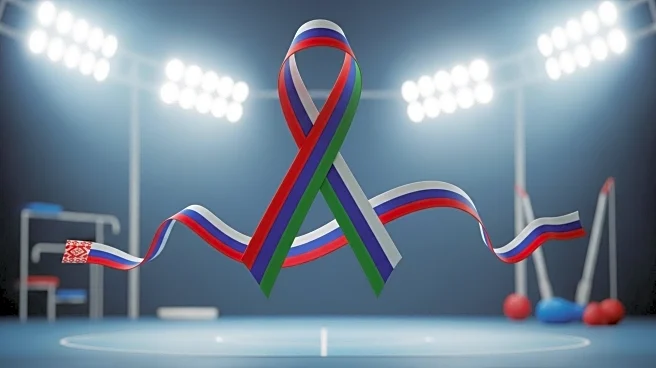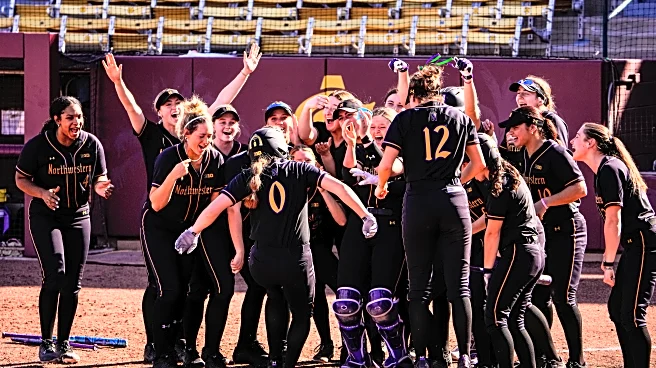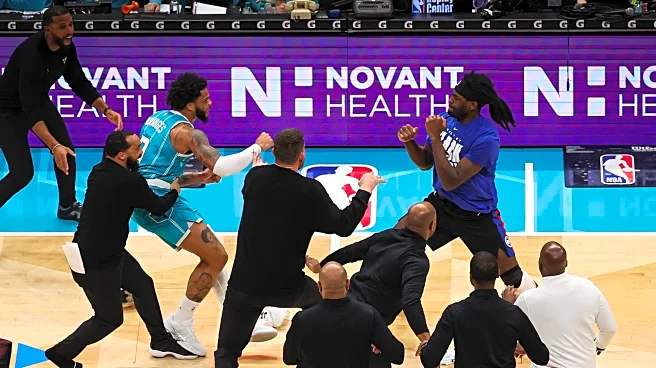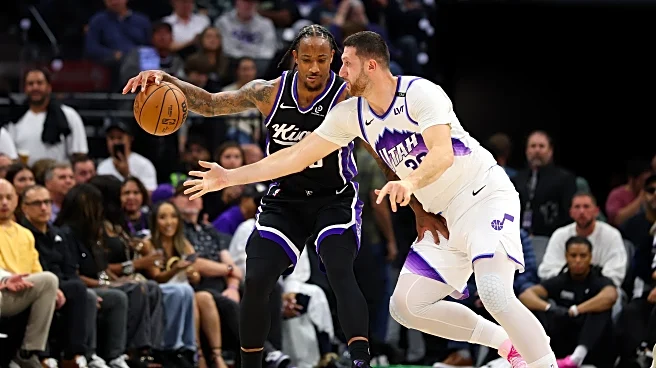What's Happening?
The International Paralympic Committee (IPC) has reinstated full membership rights to Russia and Belarus, lifting a partial suspension that was imposed in 2022 following Russia's invasion of Ukraine. This decision was announced during the IPC's general assembly in Seoul. The IPC stated that it will collaborate with the National Paralympic Committees (NPC) of Belarus and Russia to implement practical arrangements for their reinstatement. Additionally, Andrew Parsons was re-elected as President of the IPC for a third and final four-year term, securing 109 out of 177 valid votes. Parsons, who has been leading the IPC since 2017, has overseen four Paralympic Games and established a long-term partnership with the International Olympic Committee. New vice-presidents, Portugal's Leila Marques Mota and Denmark's John Petersson, were also elected, succeeding New Zealand's Duane Kale.
Why It's Important?
The restoration of membership rights to Russia and Belarus by the IPC is significant as it marks a shift in the international sports community's stance towards these countries following geopolitical tensions. This decision could influence other international sports organizations in their dealings with Russia and Belarus. The re-election of Andrew Parsons as IPC President ensures continuity in leadership, which may help maintain stability and strategic direction within the organization. The new vice-presidents bring fresh perspectives and experiences, potentially impacting the IPC's future initiatives and policies. These developments could affect the global Paralympic movement, influencing participation and engagement in upcoming events.
What's Next?
The IPC will work on implementing the practical arrangements necessary for the full reinstatement of Russia and Belarus. This process will likely involve coordination with various stakeholders to ensure compliance with IPC regulations and standards. The leadership changes, with Parsons continuing as President and new vice-presidents taking office, may lead to new strategic initiatives and policies aimed at enhancing the Paralympic movement's global reach and impact. Observers will be watching how these changes affect the IPC's operations and its relationship with other international sports bodies.
Beyond the Headlines
The decision to reinstate Russia and Belarus could have broader implications for international sports diplomacy and the role of sports organizations in geopolitical conflicts. It raises questions about the balance between sports and politics and the ethical considerations involved in such decisions. The leadership continuity with Parsons and the introduction of new vice-presidents may also signal a period of strategic evolution for the IPC, potentially influencing its approach to inclusivity, diversity, and global engagement in the Paralympic movement.










